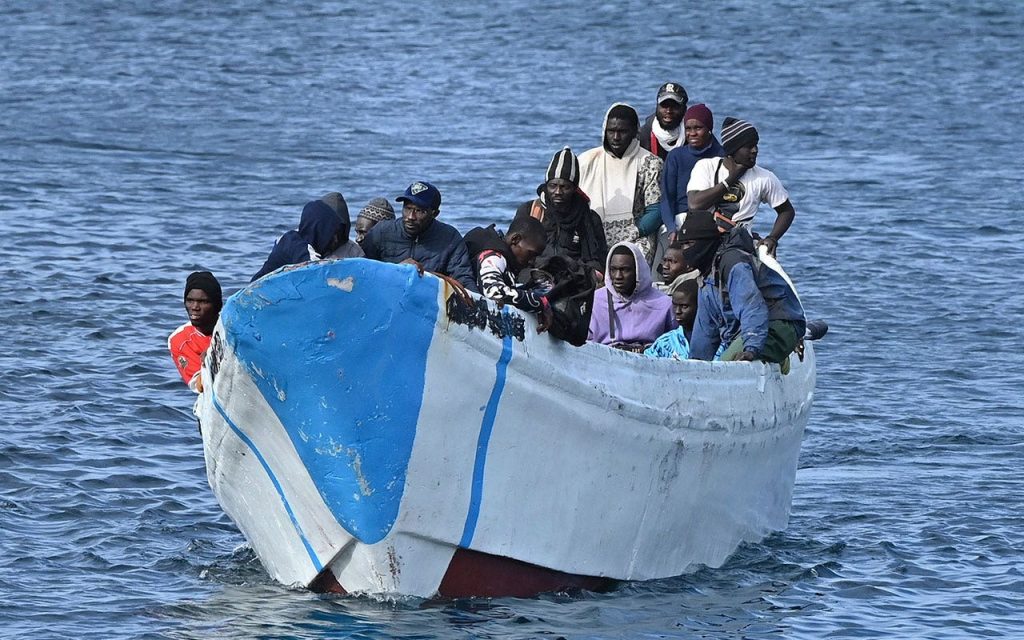The Canary Islands, a Spanish archipelago off the coast of West Africa, witnessed the dramatic birth of a baby girl on a migrant dinghy bound for Lanzarote. Both mother and newborn were reported in good health after receiving medical attention at a local hospital. This precarious journey underscores the perilous nature of the Atlantic migration route, which claims thousands of lives annually. The mother and child represent a small fraction of the continuous influx of migrants risking their lives to reach European shores. Their story highlights the ongoing humanitarian crisis in the region, where individuals flee their homelands seeking safety and better opportunities.
The medical team at the Molina Orosa University Hospital in Lanzarote confirmed the well-being of the mother and baby, who received antibiotics and specialized pediatric care. The Spanish coast guard, having rescued the dinghy carrying 60 individuals, including several women and children, recounted the challenging circumstances of the birth and the subsequent relief at the newborn’s healthy cries. The rescue operation, facilitated by favorable weather conditions, successfully brought all passengers ashore. After their hospital stay, the mother and baby will be transferred to a humanitarian center before likely being relocated to a dedicated reception center for mothers and children on a different island. This specialized care aims to provide them with the necessary support and resources during this vulnerable period.
The perilous voyage undertaken by the migrants originates from Tan-Tan, a province in Morocco, situated a considerable distance from Lanzarote. This route, commonly used by those fleeing West Africa, is fraught with danger, with thousands perishing each year in their attempts to reach the Canary Islands. The harrowing statistics compiled by Walking Borders, a Spanish migration charity, reveal the tragic extent of the crisis. The organization reports a staggering 9,757 deaths on the Atlantic Route in 2024 alone. These figures underscore the urgent need for international cooperation and humanitarian efforts to address the root causes of migration and to provide safe passage for those seeking refuge.
The dangers faced by migrants, particularly women, extend beyond the perilous sea journey. Walking Borders highlights the specific vulnerabilities of women on this route, who are often subjected to sexual violence, discrimination, racism, and deportations during their transit. These additional risks exacerbate the already challenging circumstances faced by female migrants, making their journeys even more precarious and traumatic. The experience of the mother giving birth on the dinghy serves as a stark reminder of the extreme conditions faced by those seeking refuge and the immense resilience they demonstrate in the face of adversity.
The Spanish coast guard, despite the exhaustion from frequent overnight rescue operations, expressed immense pride in their work. The captain of the rescue vessel described the emotional impact of encountering the newborn baby, whose cries affirmed life amidst the perilous journey. The dedication and commitment of the rescue crews underscore the ongoing efforts to save lives and provide assistance to those in distress at sea. These efforts, while commendable, highlight the enormity of the ongoing migration crisis and the need for comprehensive solutions to address its root causes.
The arrival of the mother and newborn in the Canary Islands adds to the growing number of migrants seeking refuge in Europe. Their story reflects the broader humanitarian crisis unfolding in the region, demanding attention and action from the international community. The perilous journeys undertaken by these individuals highlight the desperation driving them to risk their lives in search of safety and better opportunities. Beyond immediate rescue and care, addressing the root causes of migration, providing safe passage, and ensuring the protection of vulnerable groups remain critical challenges that require concerted global efforts.

